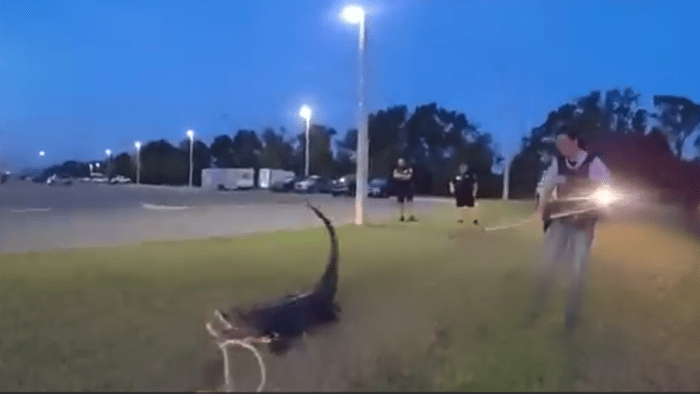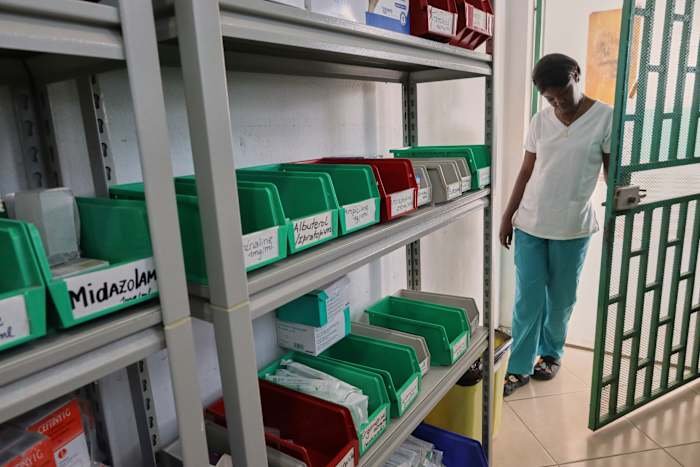Orlando, FL — Hundreds of park visitors may have been exposed to rabies after staying in bat-infested cabins at Wyoming’s Grand Teton National Park, according to national health officials. As the summer travel season peaks and many Orlando residents embark on cross-country adventures, this alarming news is prompting concern—and some urgent calls to action—about a disease that’s rare but almost always fatal if left untreated.
What Happened at Grand Teton National Park?
The Centers for Disease Control and Prevention (CDC) and the National Park Service have issued warnings to hundreds of travelers who stayed in certain cabins at Grand Teton National Park, one of the nation’s most popular summer destinations. The alert comes after several guests reported seeing bats—known carriers of rabies—inside their cabins. Health officials are concerned that visitors may have unknowingly been bitten or scratched by these bats, which can transmit the deadly virus even through minor contact.
Authorities have identified at least hundreds of potential exposures in recent weeks. Some guests may have already returned home across the country, including to the Central Florida area. Efforts are underway to contact all affected visitors, advise them of the possible risk, and provide guidance on next steps.
Understanding Rabies and Its Dangers
Rabies is a viral disease that infects the central nervous system, leading to brain inflammation and, almost always, death if not treated promptly. It is transmitted primarily through the bite or scratch of an infected animal, most commonly bats in the United States.
The early symptoms of rabies can mimic the flu—fever, headache, and weakness—but the disease progresses rapidly. Once clinical symptoms appear, rabies is almost always fatal. This is why post-exposure prophylaxis (PEP)—a series of shots—is crucial if there’s any chance of exposure.
For Orlando travelers who may have visited Grand Teton or plan to visit areas where wildlife encounters are possible, understanding the risks associated with bats and rabies can be life-saving.
Who Is at Risk? Guidance for Orlando Residents
As a major hub for national travelers, Orlando sees thousands of residents flying to and from popular parks like Grand Teton every year. If you or someone you know stayed in a cabin at Grand Teton National Park—particularly in the identified bat-infested units—between early May and late July, you may be at risk.
According to the CDC, anyone who slept in a room where a bat was present, or who had direct contact with a bat, should seek medical advice immediately. Even if you don’t remember being bitten or scratched, rabies transmission can occur through very minor contact. The virus can enter the body through small breaks in the skin or mucous membranes.
Orlando health officials are urging recent visitors to Grand Teton to contact their healthcare provider or the Florida Department of Health for guidance on whether post-exposure treatment is necessary.
How Are Officials Responding?
In response to the rabies exposure risk, the National Park Service has closed the affected cabins for inspection and remediation. Pest control specialists are working to remove bats and seal potential entry points in the structures. The CDC is collaborating with state and local health departments nationwide—Florida included—to identify and notify all potentially exposed guests.
The incident has also prompted a review of wildlife management practices at Grand Teton and other national parks. Health officials are reminding all travelers to avoid direct contact with bats and other wild animals and to report any unusual animal behavior to park authorities immediately.
Tips to Protect Yourself from Rabies While Traveling
- Avoid Touching Bats or Other Wildlife: Never attempt to handle, feed, or approach wild animals, even if they appear sick or injured.
- Inspect Lodging: Before settling into cabins or lodges, check for signs of animal entry, such as droppings or scratching noises.
- Seek Medical Advice If Exposed: If you find a bat in your sleeping quarters or have any contact with one while traveling, consult a healthcare provider as soon as possible—even if you feel fine.
- Vaccinate Pets: Ensure your pets are up to date on rabies vaccinations, as they can also be at risk during travel.
- Know the Signs: Be aware of early rabies symptoms and act quickly if you suspect exposure.
Orlando travelers are encouraged to stay informed and vigilant, especially when visiting national parks or rural areas where wildlife encounters are more likely.
Conclusion: Stay Alert, Stay Safe, and Let Us Know Your Thoughts
The recent rabies exposure scare at Grand Teton National Park is a sobering reminder of the risks that come with outdoor adventures, even in well-traveled destinations. As Orlando residents explore the country this summer, being aware of potential dangers—and knowing what to do in case of a wildlife encounter—can make all the difference.
Have you or someone you know been affected by the Grand Teton bat incident? Are you concerned about rabies risks while traveling? Share your experiences, tips, or questions in the comments below. Your input helps keep the Daily Orlando
















